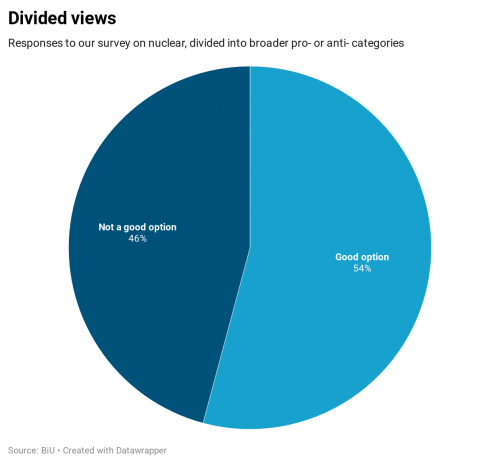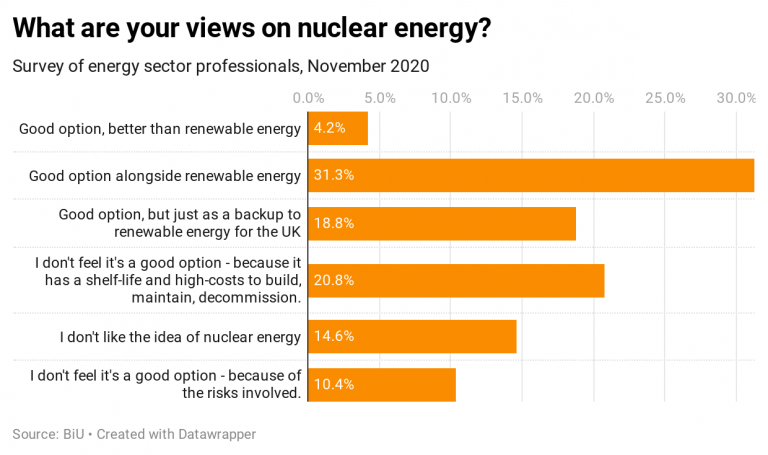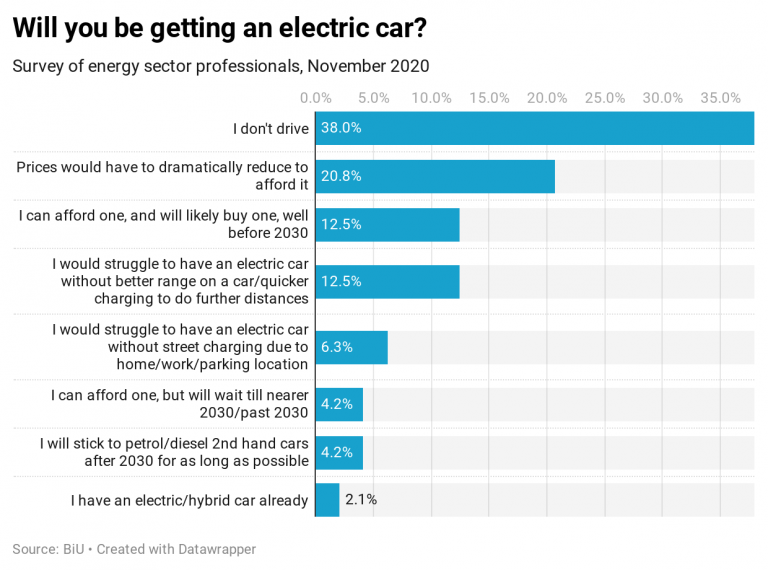A survey of energy industry professionals has revealed a lack of consensus on nuclear power. While there was a clearer outlook on the current temperature towards electric vehicles.
Energy professionals split on nuclear energy

A survey of energy industry professionals has revealed a lack of consensus on nuclear power, although over half are in favour. BiU asked people in our industry for their views on the issue following the government’s announcement a few weeks ago that it would be committing to new nuclear energy as part of its Ten Point Plan.
There were six possible answers in the survey, falling into two broad categories of “Nuclear is a good option” and “Nuclear is not a good option”.
54% of respondents chose answers supportive of nuclear, with an enthusiastic minority of 4.2% believing that it is better than renewables.
The most popular response to the survey, chosen by nearly a third of people, was that nuclear is a “good option alongside renewable energy”.

46% of respondents broadly opposed nuclear as an option. The most common reason against nuclear energy chosen by respondents to the survey was: “because it has a shelf-life and high costs to build, maintain and decommission.” Others were concerned about the risks, while nearly 15% simply “don’t like the idea”.
The government pledged £525 million to help develop new nuclear plants in the UK.
Are energy professionals dreaming of EV?
Interest in electric cars is low among people working in the energy sector, according to the latest survey from BiU. Following the government’s pledge to support the shift to electric vehicles as part of its Ten Point Plan, BiU ran a poll among energy sector professionals to find out their views.
For a fifth of respondents, cost was the barrier: they ticked “Prices would have to dramatically reduce to afford it.” For others, charging was an issue, either because they are concerned about how far an electric car can go on a single charge or because it would be impossible to charge their car at home (for example, if there is no off-street parking).

A sixth of those surveyed said that they could afford an electric car and intended to get one, with most of these planning to do so well before 2030 (when the sale of petrol and diesel cars will end).
But the most common response to the poll, gaining nearly 40% of the vote, was simply: “I don’t drive.” Roughly 23% of households in the UK live without a car, so our informal poll suggests that energy professionals are much more likely than average to be non-drivers. Perhaps they are based close to their employment HQ, or within large city centres offering good public transport links.
The Ten Point Plan focuses on electric vehicles as a route to reducing greenhouse gas emissions and improving air quality, but our poll is a reminder that many people have already done their bit on this front by giving up cars completely. Perhaps others would make the same choice if the government focused less on alternative ways of powering cars and more on supporting alternatives to driving?







